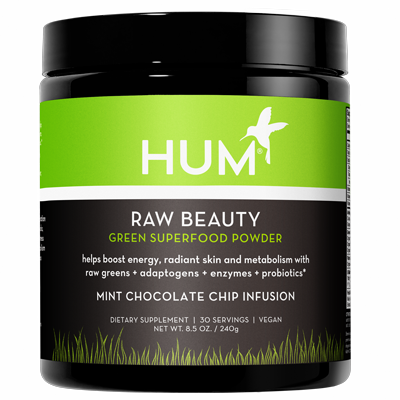THE WELLNEST • Food • Healthy Eating
How Many Cups of Coffee Per Day Are Healthy?
By Jessica Bippen, MS, RD •
January 3, 2020
Medically Reviewed By
Gaby Vaca-Flores, RDN, CLE
Registered Dietitian Nutritionist
HUM Nutritionist Jessica Bippen, MS, RD, answers the pressing question: “How many cups of coffee per day are healthy?”
If a morning without coffee leaves you feeling like a walking zombie, you’re not alone. The energy boost it provides makes coffee an essential part of most Americans’ morning routine. Once you’ve finished your first cup, you finally start to feel like you’re fully functioning and can take on the day ahead. But what happens when you’re on to coffee number three? You may feel like you have superpowers—but is your coffee habit healthy?


Health benefits of coffee
There are numerous health benefits associated with coffee. For starters, it gives you a jolt of energy and helps you focus. The caffeine content increases norepinephrine and dopamine in your brain, which helps you feel more alert and better able to focus on any tasks at hand. This boost is great if you have a long to-do list, or simply need a burst of energy in the morning. Coffee is also a good source of nutrients and antioxidants. You may be surprised to learn that coffee contains riboflavin, vitamin B5, manganese, potassium, and magnesium, among several other nutrients. The amounts are very small, but can add up depending on the number of cups you drink per day. The main antioxidants in coffee include chlorogenic acid and caffeic acid. These phytonutrients are associated with fighting cellular oxidative damage. Additionally, coffee may also help improve memory, boost metabolism and sports performance, help you live longer, and decrease your risk for certain health conditions. In sum, coffee can be good for you. Just make sure you consume it in moderation with minimal added sugar, additive-filled creamers, and artificial flavorings.
Negative effects of too much coffee
Despite its numerous health benefits, coffee can have a dark side (even if you don’t take it black). Here are a few side effects of caffeine to be mindful of:Adverse Reactions to Caffeine
For starters, the energy boost you get from caffeine isn’t for everyone. Coffee affects people differently, as each person metabolizes caffeine at different rates. A slight defect in a gene called CYP1A2 can cause the body to process caffeine less efficiently. Slow metabolizers feel the effects of caffeine much more strongly than those with a normal functioning CYP1A2 gene. Adverse effects include difficulty sleeping, anxiousness, jitters, and feeling wired after only one or two cups. Even greater, their chances of suffering from more serious health issues increase. In addition, coffee is somewhat of an addictive substance. People often find that their caffeine tolerance continually rises, which makes them reach for more cups to get the same energy boost. Unfortunately, this dependence can lead to symptoms of caffeine withdrawal if you cut your coffee habit cold turkey.Stress & Poor Sleep
Other things to take mind of regarding your coffee intake include how it affects hormones and sleep. Caffeine can exacerbate stress and increase cortisol levels. If you’re already struggling with either issue, you may find cutting back on your daily coffee intake may actually help you feel more energized and less wired and tired. Next, your ability to metabolize caffeine impacts sleep quality. Simply put, drinking coffee to make up for sleep deprivation and stress can lead to a vicious cycle of poor quality sleep.Weakened Nutrient Absorption
Lastly, caffeine can affect your body’s ability to absorb minerals like iron and zinc. However, it’s typically not a major issue if you eat a well-balanced diet and don’t drink coffee with every meal. That being said, if you think you might have a mineral deficiency, you should consider getting your levels tested along with reducing your coffee intake with meals.
How many Cups of Coffee Per Day is Healthy?
Coffee lovers will be pleased to know that it’s typically okay to reach for multiple cups of coffee daily. According to the Dietary Guidelines for Americans, it’s safe for most individuals to drink three to five cups of coffee per day (or five to seven shots of espresso) for a daily caffeine intake under 400 milligrams. However, it’s important to know that caffeine content varies depending on the type of coffee you choose. An average eight-ounce cup of coffee contains 95 milligrams of caffeine, meaning four cups will amount to roughly 380 milligrams. That being said, it’s best to listen to your body. Since caffeine tolerance varies from person to person, you’re better off going by your individual observations. Notice how you feel after one or two cups. If you start to feel jittery, anxious, or have trouble sleeping, you may do better with less caffeine. Note: Recommendations for pregnant and breastfeeding women are much lower. The American Pregnancy Association recommends no more than 200 milligrams of caffeine per day. However, it’s always best to check in with your doctor regarding caffeine during this time.Bottom line
Coffee is full of antioxidants and provides a welcome energy boost. With its numerous health benefits, coffee can be a healthy addition to your diet. In regards to the number of cups you can drink and still be healthy, research says five or less is A-OK. However, the number greatly depends on how well you tolerate caffeine. Take notice of how you feel after one cup before automatically pouring the next. Despite the short-term energy boost from your daily java, you may find you sleep better and feel calmer with a little less caffeine in your diet. But when deadlines are pressing or you just need some extra pep in your step, know that you’re not necessarily harming your health if you’re reaching for another cup.More like this









